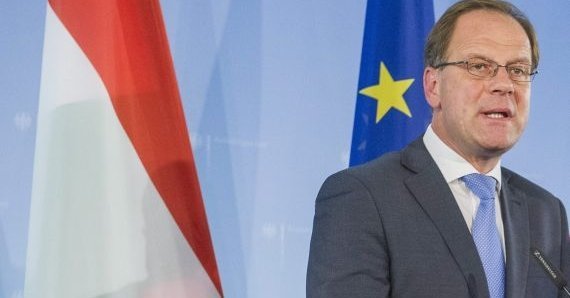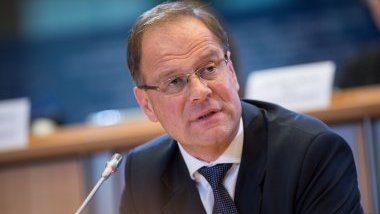This is your first interview specifically on sport issues as Commissioner responsible for Sport. How does sport fit in your portfolio? How important is this topic in relation with education, culture and youth?
My portfolio, which I believe is the best in the Commission, includes education, culture, youth and sport. These areas are connected by a strong link: the building of communities. This is what makes my work particularly exciting.
All the areas in my portfolio have a strong connection to my life: I am professor at a University, I love culture and I am a sports fan, a supporter of the handball team of my home town Veszprem. How could I rank them when all of them are so close to my heart? My mission as a Commissioner is to serve European citizens. This is what determines my work. Sport has a strong potential to make people’s lives better in many respects, and I am ready to maximise that potential.
Sport and the European Union have a recent relationship. How do you intend to consolidate the foundations of this relationship built in the last 5 years?
Sport became an EU competence with the Lisbon Treaty at the end of 2009. Ensuing initiatives, such as the 2011 Communication on sport, have helped to shape the EU policy agenda. We have put in place good structures for cooperation with the Member States and established a structured dialogue with the sport movement.
Since 2011, the priorities for the EU sport agenda have been laid down in the multi-annual EU Work Plan for Sport. I think that the implementation of this first EU work plan was a success, and the second one, centred on the integrity of sport, the economic dimension of sport and on the relationship between sport and society, is set and ready to be filled with life.
We are making progress in tackling important threats to sport, such as match-fixing and doping. For example, the new World Anti-Doping Code, which benefited from significant European input, will enter into force in a few weeks from now. Meanwhile, the new Erasmus+: Sport programme provides a stable financing framework that supports our policy agenda. All of this gives us an excellent basis on which to build over the coming five years.
Sport relates to a myriad of societal and economic issues. Which will be your priorities for the next 5 years for the field of sport?
As Commissioner for sport, I want to focus on three priorities.
First, I want to promote the grassroots dimension of sport. This is an issue close to my heart. Practicing sport will help us to lead healthier lives, but most importantly, sport helps to build communities. It brings together people of different ages, nationalities and social backgrounds. This is something we should cherish, protect and support.
Second, I want to tackle the big threats to sport. The threats that challenge its very essence and its place and acceptance in society – from racism to match-fixing to corruption. Sport is run by its organisations, and that is the way it should be. But it depends on citizens’ trust. I am ready to work with the sport family, Member States, as well as actors at regional and local level, to ensure that its integrity is restored and protected.
Third, I want to raise awareness of how much the sport sector contributes to growth, innovation and job creation. And I want to ensure that the European Commission as well as Member States recognise and use its potential to give a boost to Europe’s economy. We need to build on this to ensure sport plays its full role in helping to revive economic growth.
The European Week of Sport is likely to be the highlight of the year 2015. How will this event materialize? Which impact will it have on European citizens?
Health is a concern for all of us. Regular physical activity is part of a healthy lifestyle and prevents a number of diseases. We need to make people aware of it and that is why we support it at European level.
The European Sport Week, the first of its kind, should become an important tool in promoting sport and the place of physical activity in our societies and in our everyday lives. This event will be organised on an annual basis from 2015, and Erasmus+ will provide substantial financial support.
We need partners to make the Week a success and we will sign the first partnership documents with 14 organisations at the European Sport Forum in Milan. I hope that their example will inspire other European sport federations, sport organisations and others to join forces with us.
Sport and Citizenship is the only think tank dedicated to European sport policies. What could be our contribution to your objectives and what will be your expectations from civil society organisations in general?
I count on your ideas for providing input on finding the right focus of our activities and in identifying new areas where European sport policy should be developed. As for civil society organisations, I would like to see them getting involved in our projects, implementing our common objectives and providing feedback on our policy priorities.



Follow the comments: |
|
